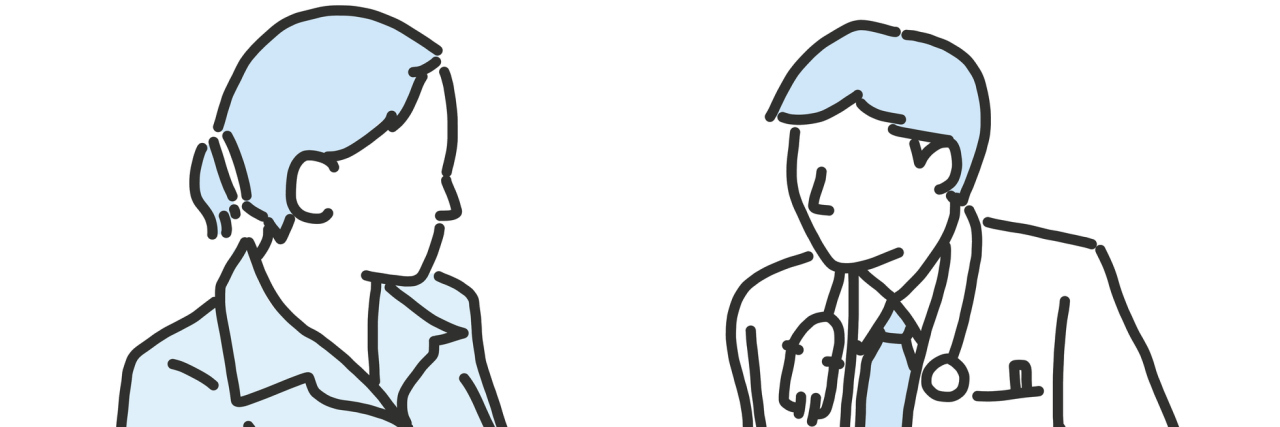I have several rare conditions (all part of one constellation: Ehlers-Danlos syndrome), and as a result I am often a medical mystery to many physicians. Only one in 7,000-20,000 of people in the world has my condition, and many doctors are unaware it exists. Or, if they are aware, many don’t understand most of the details of it. For example, I recently went to an orthopedic surgeon to have a hip problem looked at, and he wanted to do a steroid injection into my hip. I had to tell him no.
• What is Ehlers-Danlos Syndrome?
• What Are Common Ehlers-Danlos Syndrome Symptoms?
This left my husband and the doctor both staring at me for a second. He then went on to explain what steroid injections do and how they’re useful, and I said no again. He frowned. I told him about the dangers of that treatment along with my condition make it not something I’m willing to roll the dice on. Steroids, you see, break down collagen and can cause joint problems. I have enough of those, and my joints don’t need more help breaking down, thanks. He gave me the side-eye and said he’d call my rheumatologist.
The next visit, he said my rheumatologist had confirmed my statement, and we’d move ahead with a different plan of attack on the hip problem. Which is fine. I am not upset with him for not knowing everything about Ehlers-Danlos syndrome, and he said he was willing to bet I know more because he sees two or three patients a year with my condition – and I live with it every day.
I tell you this story because it’s indicative of many of my doctor’s appointments. Particularly with new doctors. I have had to advocate for my own safety many times and regularly tell doctors that I will not do their procedure or try certain medications because I know my body and my conditions.
It’s an awkward thing, too, because doctors aren’t usually in a position where people tell them they are wrong and don’t know much about a particular subject. It has also led to arguments on more than one occasion. I’ve also had to find a new physician because I couldn’t trust the one I had, or because they were offended that I didn’t bow to their expertise and risk a procedure that could hurt me.
The doctors I keep and love are ones who listen to me and hear what I say about what’s happening in my body. They might not know the answers all the time, but they definitely are willing to look and will hear me out when I tell them something about what’s going on, or if I say I don’t want to try something.
When you have a complicated diagnosis like I do, the person who has to advocate most for your care is you. You cannot expect doctors to immediately understand or even listen to what you have to say. While I’m not telling you to disregard doctors’ orders, I do recommend researching your conditions and understanding them. That way, you know when to ask questions and not allow yourself to be pushed into things that you are not comfortable with, or that might hurt you.
Gettyimage by: smalllike

